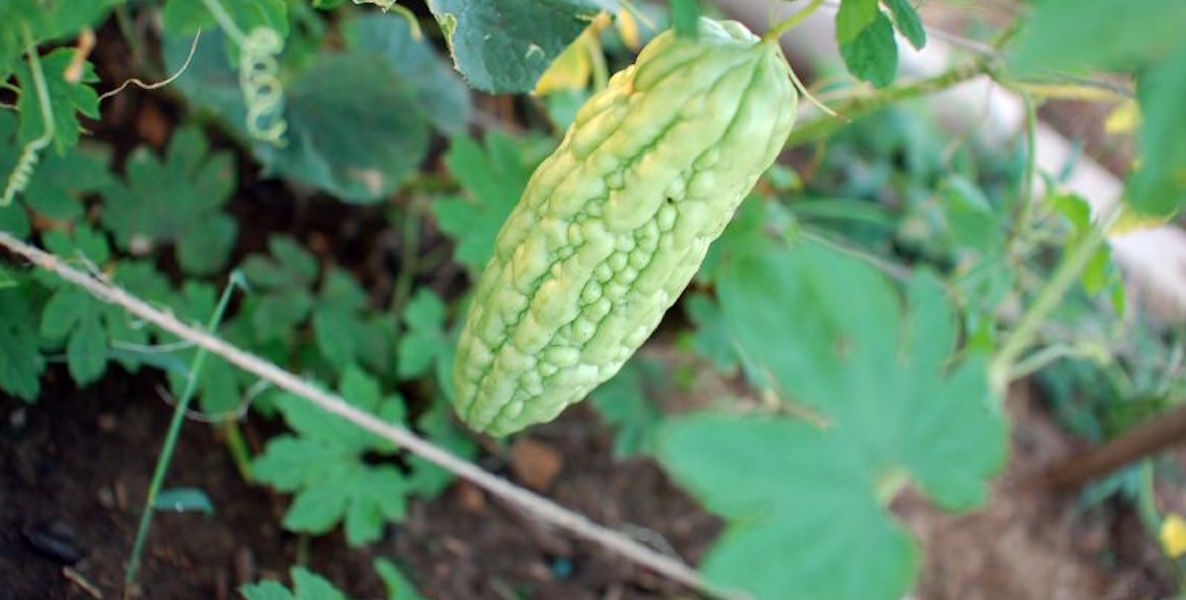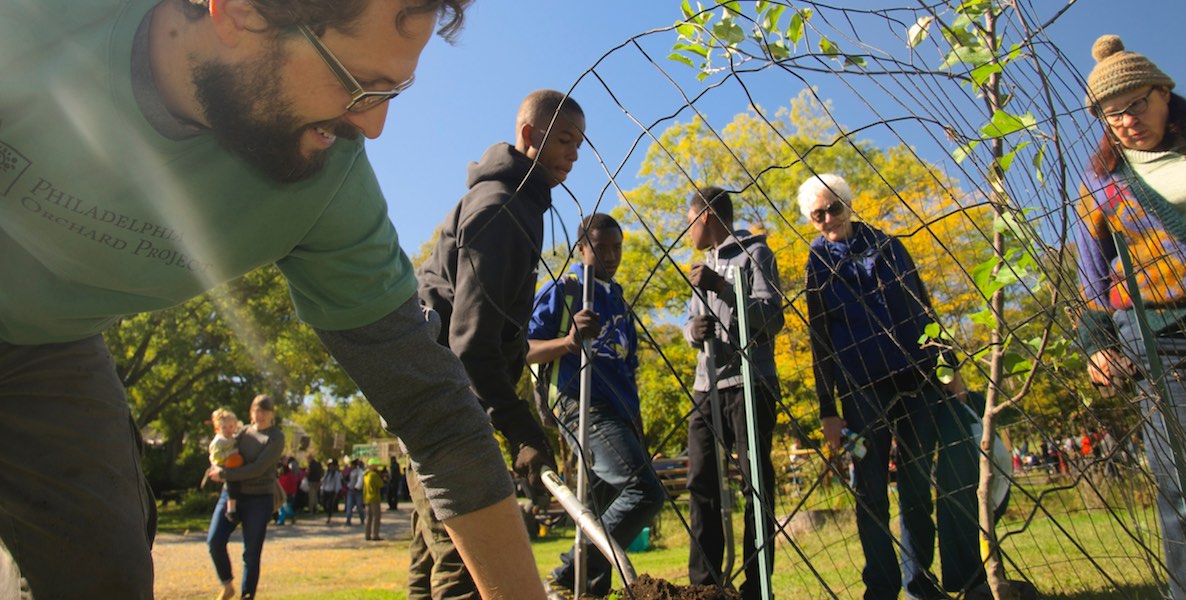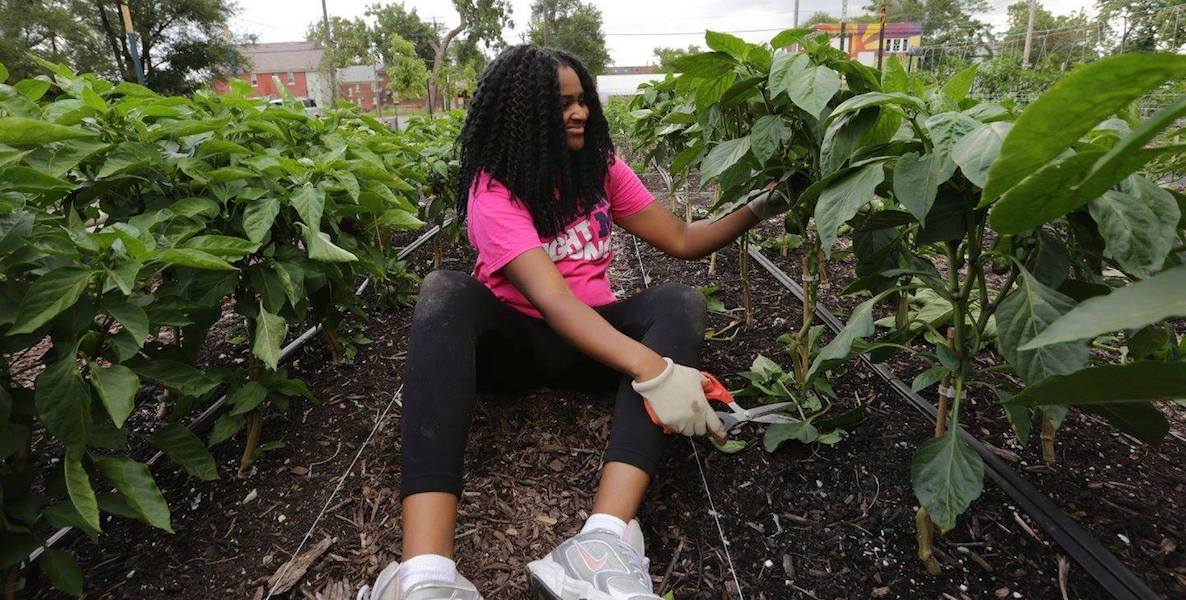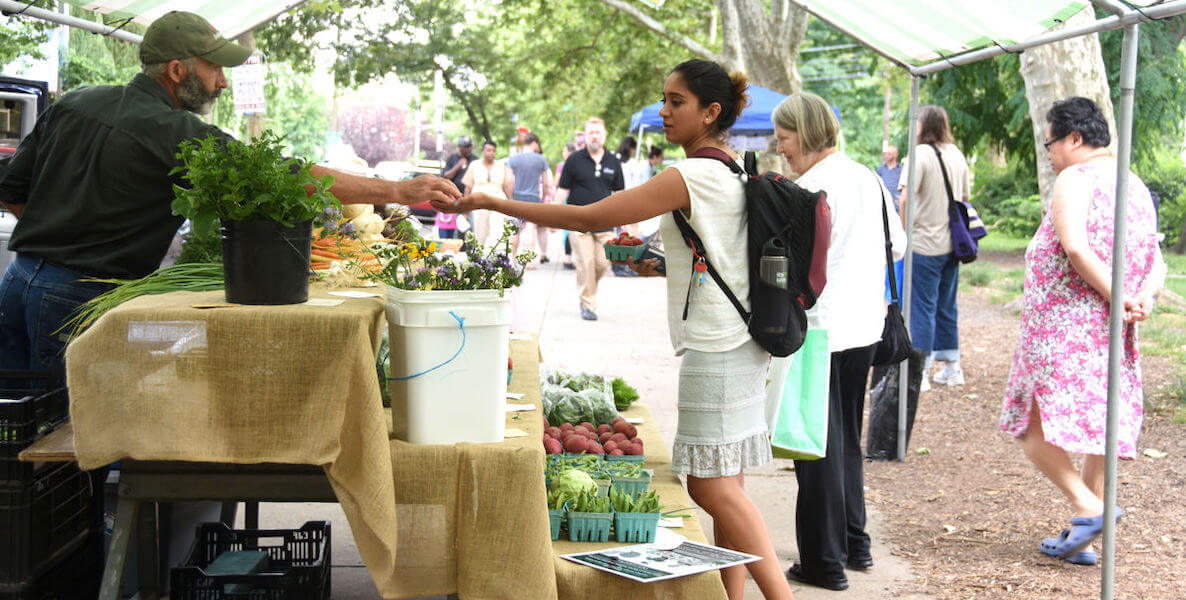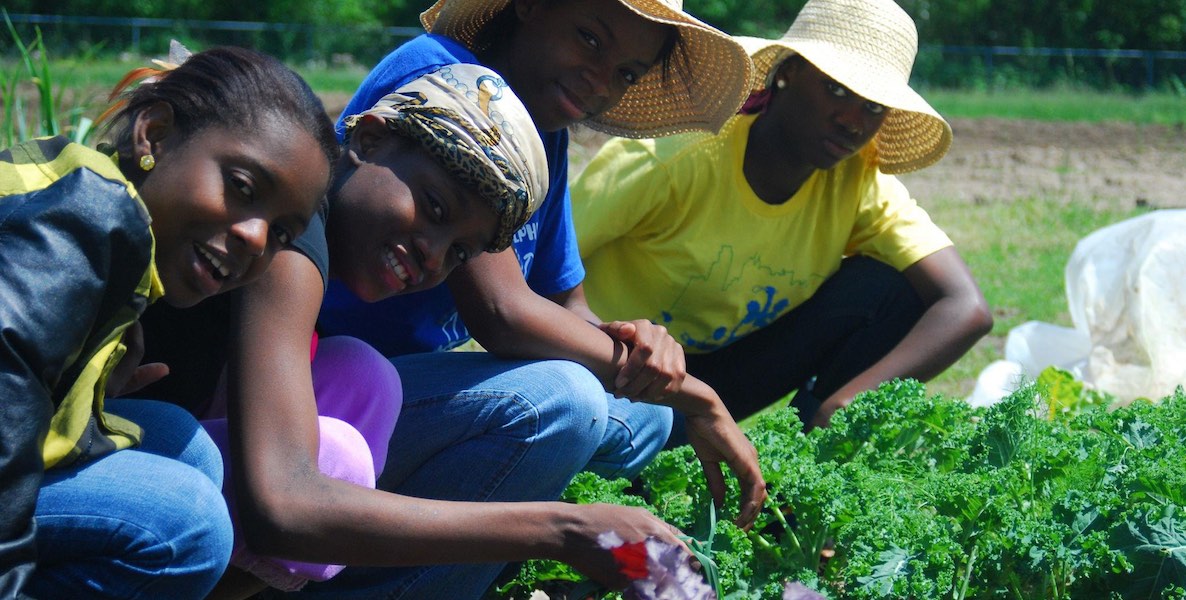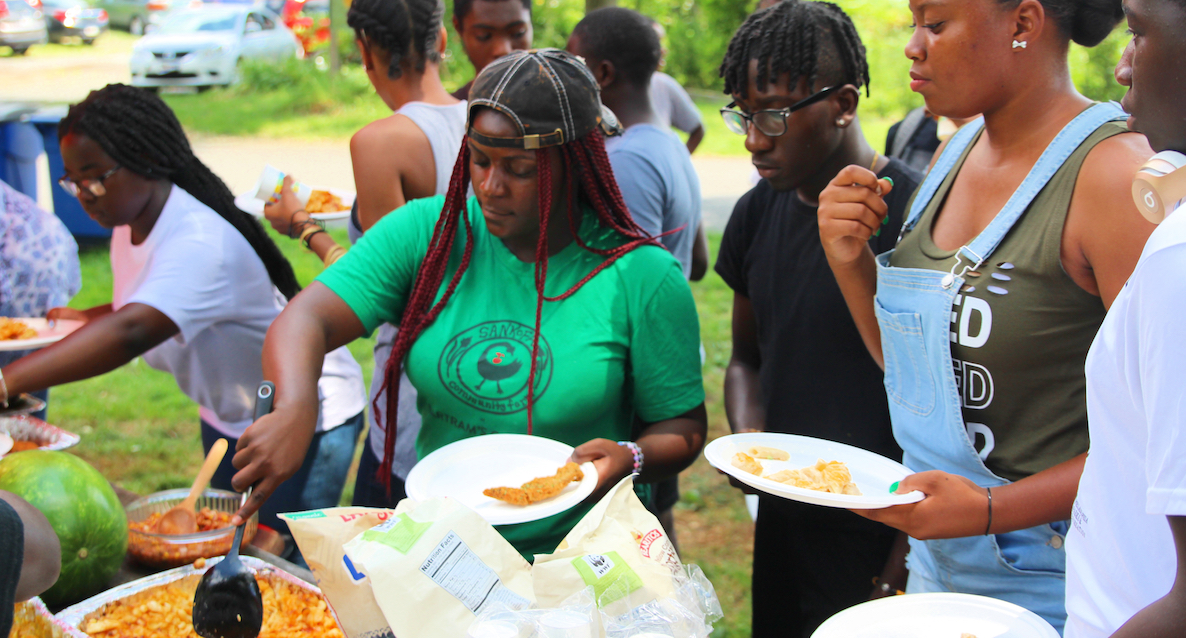Lemonade, two watermelon, aluminum pans of fried fish and curry chicken, Texas caviar, banana pudding, cucumber salad, and more spread across three picnic tables. “I will always be grateful, I will always be thankful,” sang Chris Bolden-Newsome, the co-director of the Sankofa Community Garden at Bartram’s Garden, over the food. Before that, those about to eat held hands as an elder member of the Bartram’s community led a prayer.
The feast was to celebrate the successes of 25 paid high school students who had recently completed the six week Sankofa Community Farm High School Internship Program. What did they do there this summer? “Oh my goodness,” says 19-year old Hajjah Glover, a program veteran and one of this year’s supervisors. “So much.”

Prefer the audio version of this story? Listen to this article on CitizenCast below:

Glover was part of market crew, a group of students in the program who sold produce outside of Bartram’s Village housing complex and at the Clark Park Farmers’ Market every Saturday. The rest of the students, christened the Big Incredible Gardeners (or B.I.G.) by a participant in 2011, planted, tended to, and harvested crops on the farm, as well as performed more administrative duties like working in the kitchen. Together, the students helped produce and distribute the over 15,000 pounds of food that comes out of Bartram’s each year. They also—as do the 12 school year interns—got help with their access to college, and learned about the culinary traditions of African descended people.
“When I was graduating high school, trying to figure out what I wanted to do with my life, I asked myself: ‘Where did I find the most peace at in my whole entire life? The most calm? The most love,’” says Glover. “And it was here.”
Originally a project of Penn’s Agatston Urban Nutrition Initiative, Sankofa in 2017 launched as a separate entity, with the same mission: To provide a means for youth development, classroom visits, community gardening and fresh produce in an area of Southwest Philly that was a food desert, with little access to affordable fruits and vegetables. The farming is all organically grown by volunteers, students and paid interns, and the food, sold at farmers markets, is intentionally affordable.
The name Sankofa—which means “go back and get it” in the Twi language of what is now Ghana—reflects the garden’s focus on the African diaspora, a deliberate nod to the African Americans and more recent African immigrants in the surrounding neighborhood.
![]()
In addition to its internship program and farmers markets, Sankofa operates within the larger Bartram’s network of events and programs which welcomes over 10,000 students a year in its outside classroom. Sankofa runs year-round programs for teens around nutrition, African heritage, and food justice; has 45 community gardeners—many from the nearby housing complex—for whom it provides supplies and workshops; held 50 affordable food stands last year; and distributed around 8,000 vegetable starts to farms and gardens around the city.
![]()
“What we find here with the young people,” says Sylva Briscoe, a member of the Bartram’s Garden Board, “is that their grades improve, their public speaking improves, and we’re not tutoring, we’re not sitting down, we’re just showing an interest. And it’s profound, and it goes from them to their families, because now they take the food that they make here, go home, and teach mom and dad.”
Briscoe initially joined the garden to have her own little farm. Sankofa, though, was not what she expected. “What I quickly found out is that Sankofa was different. What I found out is that they were talking about food histories, food paths, food sovereignty,” she says. Food sovereignty refers to a community’s right to culturally-appropriate and nutritious food. More broadly, it refers to the idea that those involved in the production and consumption of food should have control over that production and consumption.
The students, christened the Big Incredible Gardeners (or B.I.G.), planted, tended to, and harvested crops on the farm. They helped produce and distribute the over 15,000 pounds of food that comes out of Bartram’s each year.
On the afternoon of the intern celebration, the Big Incredible Gardeners walked up (both alone and in groups) to a central microphone in front of an audience of community members, friends, and family, and through different means, expressed their growth over the past six weeks. Some delivered speeches, others performed poems, one student sang, and one group danced. Some came up more than once. Another group debuted an original skit, with each student at first kneeling on the ground to represent seeds. One by one, they stood and blossomed and exclaimed how they had changed: shy to confident, anti-social to social.
![]()
Student Marissa Wileczek recited an essay to the audience, explaining how the program has helped her find confidence and how she’s now more capable of seeking out and recognizing support systems for herself. “Anyone who puts in work here becomes part of our family,” she said.
Glover, now a freshman at the Community College of Philadelphia, says she returned to Sankofa as a supervisor this summer because of that feeling of family. “When I was graduating high school, trying to figure out what I wanted to do with my life, I asked myself: ‘Where did I find the most peace at in my whole entire life? The most calm? The most love?’ And it was here,” she says. “A lot of students find this place to be a safe place where they can let go of their stress or talk about what’s going on in their life. This is a safe place to grow. And to talk about your challenges, and to grow with people.
Briscoe says she has seen students transform along with the garden. “It goes from them coming in and not wanting to get dirty, and not wanting to get sweaty, to at the end of the program going out and knowing ‘I grew that plant, let me pick that plant, bring it in, cook it and serve it to you,’” Briscoe says. “And that happens in six weeks. It’s phenomenal.”
Sybria Deveaux, another student intern, charted the effect of the program on her own worldview. “A lot of people don’t understand that plants are alive and you put in what you get out,” she said. “If you’re not really caring for it, or not weeding it, or not watering it, or not treating it like it deserves respect, you’re probably not going to get anything. So you have to understand those things.”
Lessons about gardening, true—but also, about life.



